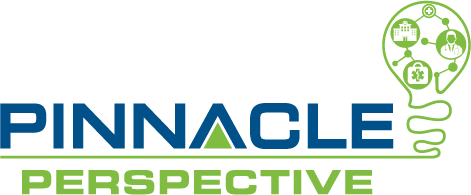
Effective January 1, 2024, the Centers for Medicare and Medicaid Services (“CMS”) established an active payment status for CPT codes 96202 and 96203 (caregiver behavior management/modification training services) and CPT codes 97550, 97551, and 97552 (caregiver training services under a therapy plan of care established by a PT, OT, SLP).
Before we delve into the specifics of the codes, let’s look at CMS’ definition of a caregiver:
“An adult family member or other individual who has a significant relationship with, and who provides a broad range of assistance to, an individual with a chronic or other health condition, disability, or functional limitation” and “a family member, friend, or neighbor who provides unpaid assistance to a person with a chronic illness or disabling condition.”
All five (5) codes require a face-to-face encounter between the training provider and the caregiver(s). Also note, none of the above codes require the patient to be present.
96202 and 96203 should only be billed by physicians or other qualified non-physician providers (“NPP”). According to the American Medical Association (“AMA’), training should include how to:
- structure the patient’s environment to reinforce desired patient behaviors,
- reduce the negative impacts of the patient’s diagnosis on patient’s daily life, and
- develop highly structured technical skills to manage the patient’s challenging behavior.
Codes 97550-97552 should only be billed by physical therapists (“PT”), occupational therapists (“OT”) or speech / language pathologists (“SLP”). These providers should be educating caregivers about how to simplify things such as the patient’s activities of daily living (“ADL”) and how to properly perform patient transfers. The training goal is to help the caregiver reduce the negative impacts of the patient’s diagnosis on the patient’s daily life and to assist the caregiver and patient in carrying out the agreed upon treatment plan.
Choosing the proper code is critical and depends on whether the training was provided to an individual caregiver or a group of caregivers. Codes 97550 and 97551 should be used to report training to INDIVIDUAL caregivers. They are both billed based on how much time the provider spends training the caregiver. See Table 1.
| TABLE 1: CAREGIVER TRAINING FOR INDIVIDUAL CAREGIVERS | ||||
| CPT Code | Description |
Time |
Provider Type |
Patient Presence Required? |
| 97550 | Caregiver training in strategies and techniques to facilitate the patient’s functional performance in the home or community (eg, activities of daily living [ADLs], instrumental ADLs [iADLs], transfers, mobility, communication, swallowing, feeding, problem solving, safety practices) (without the patient present), face to face; initial 30 minutes |
30 minutes |
PT, OT, SLP |
NO |
| 97551 | Caregiver training in strategies and techniques to facilitate the patient’s functional performance in the home or community (eg, activities of daily living [ADLs], instrumental ADLs [iADLs], transfers, mobility, communication, swallowing, feeding, problem solving, safety practices) (without the patient present), face to face; each additional 15 minutes (List separately in addition to code for primary service) |
Each additional 15 minutes
|
PT, OT, SLP |
NO |
Codes 96202, 96203 and 97552 are used to report training for GROUPS of caregivers. These codes should not be billed per caregiver, but instead by session. Note codes 96202 and 96203 are time-based codes, but code 97552 is not and should be billed once per session, regardless of the time. See Table 2.
| TABLE 2: CAREGIVER TRAINING FOR MULTIPLE CAREGIVERS | ||||
| CPT Code | Description |
Time |
Provider Type |
Patient Presence Required? |
| 96202 | Multiple-family group behavior management/modification training for parent(s)/guardian(s)/caregiver(s) of patients with a mental or physical health diagnosis, administered by physician or other qualified health care professional (without the patient present), face-to-face with multiple sets of parent(s)/guardian(s)/caregiver(s); initial 60 minutes |
60 minutes |
Physicians and NPPs |
NO |
| 96203 | Multiple-family group behavior management/modification training for parent(s)/guardian(s)/caregiver(s) of patients with a mental or physical health diagnosis, administered by physician or other qualified health care professional (without the patient present), face-to-face with multiple sets of parent(s)/guardian(s)/caregiver(s); each additional 15 minutes |
Each additional 15 minutes |
Physicians and NPPs |
NO |
| 97552 | Group caregiver training in strategies and techniques to facilitate the patient’s functional performance in the home or community (eg, activities of daily living [ADLs], instrumental ADLs [iADLs], transfers, mobility, communication, swallowing, feeding, problem solving, safety practices) (without the patient present), face to face with multiple sets of caregivers. |
No time |
PT, OT, SLP |
NO |
Be certain to review the complete Final Rule cited below for more information on how to best utilize these codes in your practice.
Be on the lookout for Article 4 of this series.
Keeping up with rapidly changing rules can be exhausting. PERCS is here to help you navigate both new and existing guidelines to remain compliant. If you have any questions or need assistance, please contact Angie Wood, CPC, Sr. Physician Auditor and Educator at AWood@AskPHC.com or Lori Carlin, CPC, COC, CPCO, CCS, CRC, Principal, at LCarlin@AskPHC.com . They will be readily available to answer your questions and provide expert advice, so you are well equipped to move forward!
References: